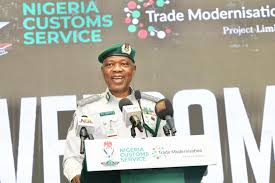IMO Secretary-General Arrives Nigeria, Commends NIMASA’s Deep Blue Project and Blue Economy Policy
A notable moment for Nigeria’s maritime sector unfolded as the Secretary-General of the International Maritime Organisation (IMO), Mr Arsenio Domínguez, touched down in Lagos to commend the country’s strides in maritime safety, security, and blue economy development. His visit underscored Nigeria’s leadership in the Gulf of Guinea and highlighted the Deep Blue Project as a regional model for cooperation and capability.
Key highlights from the visit
- Zero piracy milestone and security gains: Domínguez lauded Nigeria’s remarkable achievements in maritime security, including over three years without piracy incidents. He credited the concerted efforts of Nigerian security agencies, particularly the Nigerian Navy, and robust safety infrastructure for these tangible results.
- Deep Blue Project as a regional blueprint: The IMO chief described Nigeria’s Deep Blue Project as a model for regional cooperation in the Gulf of Guinea. The initiative, alongside coordinated security and surveillance measures, demonstrates what is possible when nations collaborate to safeguard sea lanes.
- Nigeria’s leadership and regional impact: He noted that Nigeria’s investments and strategic partnerships extend beyond its own waters, contributing to safer seas for West and Central Africa. This aligns with broader regional security objectives and strengthens the maritime resilience of the entire zone.
Nigeria’s response and ongoing collaboration
- Submissions and continued development: Domínguez acknowledged Nigeria’s formal submissions to the IMO detailing national and regional security initiatives. While commending progress, he emphasised the need for continued investment in infrastructure and modern equipment.
- Technical assistance and capacity-building: The IMO reaffirmed its commitment to supporting Nigeria through technical assistance, awareness campaigns, training programs, and capacity-building initiatives.
- Upcoming and ongoing projects:
- A regional conference in Ghana in January, focusing on the Safe Seas Project, aimed at consolidating contributions from Nigeria and partner states.
- Ongoing discussions with the European Union about launching a new maritime governance project centred on ports and security.
- Two regional projects in Southern and Western Africa, with progress tracked via defined performance indicators.
Beyond security: preparing for a changing maritime future
Domínguez also pointed to broader global challenges shaping the sector, including:
- The energy transition and the adoption of biofuels.
- Financing mechanisms to support training for seafarers, infrastructure development, and the adoption of future fuels.
These considerations reflect a forward-looking approach that integrates safety with sustainability and economic opportunity.
Nigeria’s Blue Economy Policy and training excellence
- Blue Economy Policy praised: Domínguez highlighted Nigeria’s Blue Economy Policy as a forward-looking framework for harnessing marine resources sustainably. This aligns with the country’s broader vision for economic diversification and job creation in the blue economy.
- Maritime Academy of Nigeria (MAN) Oron: Admiration was expressed for the academy’s facilities, especially the training infrastructure. The visit emphasised the importance of collaboration among MAN Oron, the Ministry of Education, and industry stakeholders to guide Nigerian youth toward maritime careers.
- Cadet engagement and industry partnerships: The IMO visit included interactions with cadets at MAN Oron, encouraging them to seize opportunities in renewable energy, green shipping, and maritime technology.
Ministerial perspectives and institutional reforms
- Government commitment reaffirmed: Minister Adegboyega Oyetola highlighted the strength of Nigeria’s relationship with the IMO and the pivotal role of partnerships with the Nigerian Navy and other stakeholders in suppressing piracy in the Gulf of Guinea.
- Ongoing reforms at NIMASA and allied bodies: The Director-General of NIMASA, Dr. Dayo Mobereola, showcased reforms and initiatives in security, seafarer welfare, and regulatory frameworks designed to position Nigeria as a leading maritime nation.
- Port and industrial collaboration: The Managing Director of Lekki Free Trade Zone and other stakeholders outlined how ports and logistics capabilities would boost cargo handling, attract investment, and create jobs while expanding Nigeria’s blue economy footprint.
What this means for the future
- The IMO Secretary-General’s visit reinforces Nigeria’s reputation as a regional beacon for maritime safety and blue economy leadership.
- The ongoing collaboration between Nigeria, the IMO, the EU, and regional partners promises enhanced governance, security, and sustainable development of ocean resources.
- For aspiring maritime professionals, renewed emphasis on training, international partnerships, and sustainable technologies opens doors to a dynamic career landscape in a decarbonising maritime sector.
- Nigeria’s zero-piracy record for over three years is a testament to integrated security architecture and cross-agency cooperation.
- The Deep Blue Project, alongside the Blue Economy Policy, positions Nigeria as a template for Gulf of Guinea regional resilience.
- Continued investments in infrastructure, modern equipment, and capacity-building are essential to sustain gains and meet future maritime challenges.
- Education and training, especially through institutions like MAN Oron, are critical to preparing a skilled workforce for green shipping, renewables, and advanced maritime technologies.



